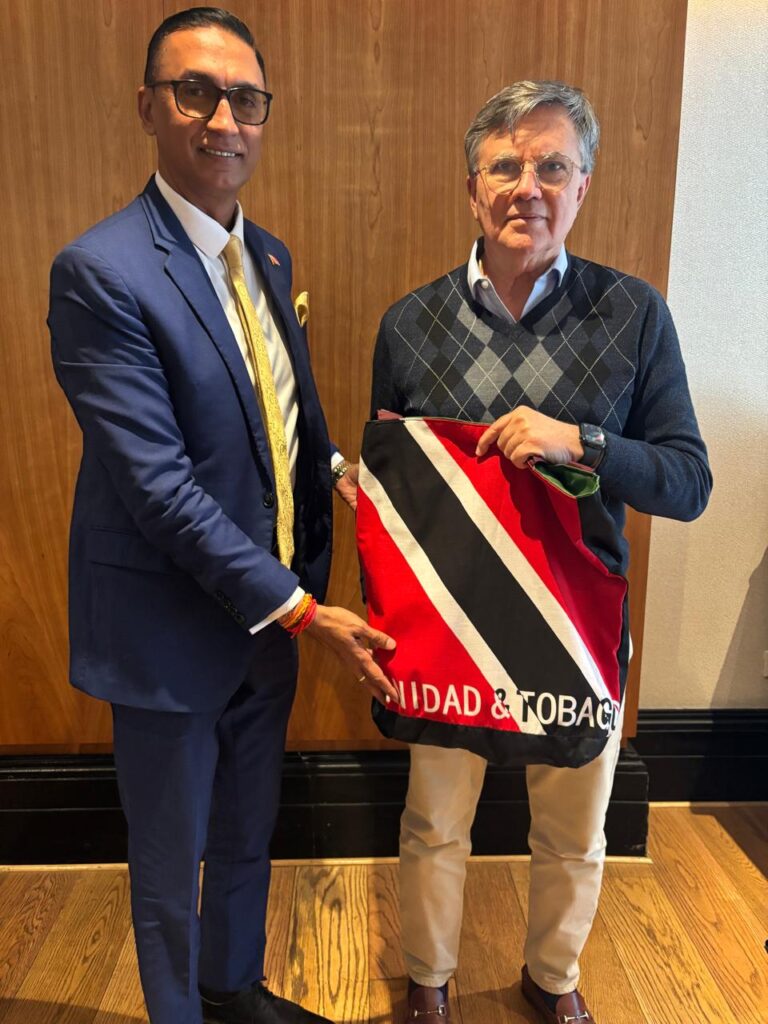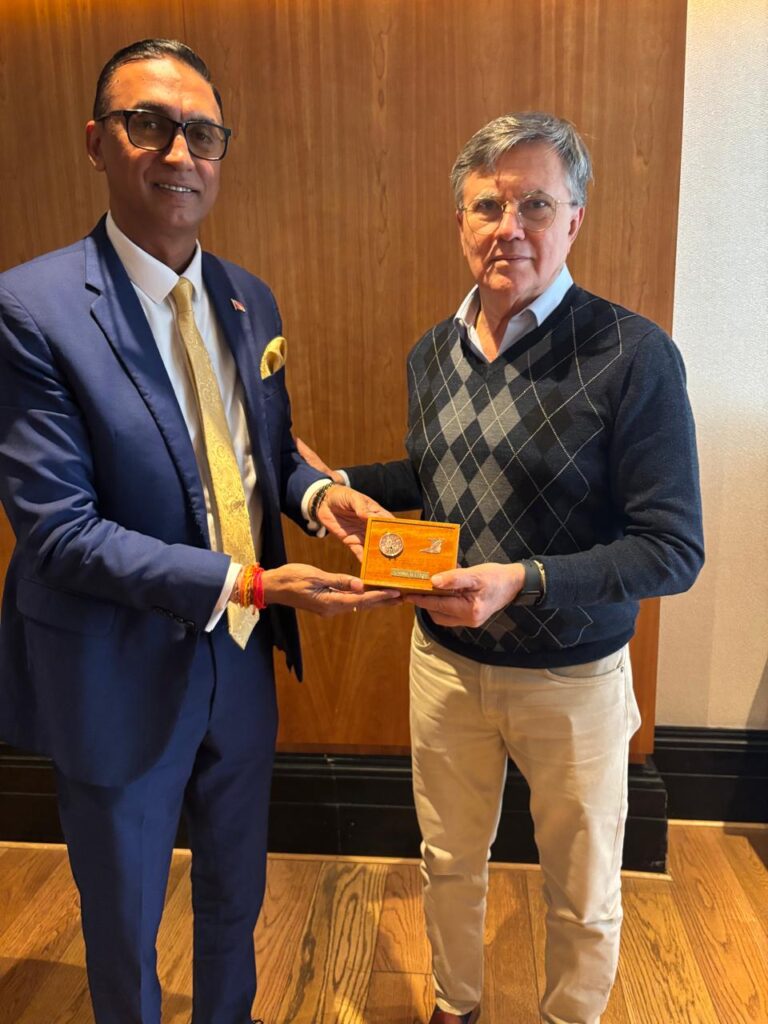
Buenos Aires, 5 August 2025 (IICA) – The Minister of Agriculture, Land and Fisheries of Trinidad and Tobago, Ravi Ratiram, meeting with the Director General of the Inter-American Institute for Cooperation on Agriculture (IICA), Manuel Otero, highlighted the fact that this mission to Argentina, which began this week, would open up opportunities for his country to boost production and value addition in agriculture, while also increasing bilateral trade.
Ratiram, along with two other ministers from the Central American and Caribbean regions—namely Roberto José Linares, Panama’s Minister of Agricultural Development, and Frederick Stephenson, the Minister of Foreign Affairs, International Trade and Consumer Affairs of Saint Vincent and the Grenadines—are participating in a mission that IICA organized to strengthen trade between the countries of the hemisphere.
During the conversation with Otero, the Trinidadian minister stressed his Caribbean country’s need to enhance its food security, by reducing dependence on food imports and strengthening public policies aimed at attracting youth to agriculture. He also revealed that Trinidad and Tobago is exploring ways to intensify agroprocessing of crops produced in the country, such as cassava and pineapple.
“The meeting was inspiring and encouraging”, said Ratiram. “Although I have been Minister of Agriculture of Trinidad and Tobago for only three months, I know that IICA has done and continues to do a great deal to enhance the productivity and well-being of farmers throughout the hemisphere”.
Furthermore, he noted that, “IICA shares our values and objectives. I am extremely satisfied with the meeting and look forward to continuing and deepening our cooperation efforts, which are fundamental for my country”.
Also attending the meeting with Otero were Jorge Werthein, Special Advisor to the General Directorate, and Fernando Camargo, IICA Representative in Argentina.
Lessons to learn
While in Buenos Aires, Ravi Ratiram and the ministers from Panama and Saint Vincent and the Grenadines will attend meetings at the Ministry of Foreign Affairs and the Secretariat of Agriculture, Livestock and Fisheries, as well as with private sector representatives.
During their visit to Argentina—a food production powerhouse—the three ministers will participate in one of the country’s most important annual agricultural events: the Congress of the Argentinian Association of Direct Seeding Producers (AAPRESID). AAPRESID, a benchmark organization in the region and the world, promotes sustainable production systems.
“I am convinced that there are many lessons we can learn from Argentina, which is a global leader in agriculture with the capacity to supply food for a population more than ten times the size of its own, which is enormous compared to Trinidad and Tobago”, noted Ratiram.
“I have visited and spoken with farmers throughout the length and breadth of my country, and I know the challenges they face, which are similar to challenges in many parts of the world, such as flooding and the proliferation of pests and diseases”, said the minister.
Ratiram explained that he was in discussions with his country’s Ministry of Education to reintroduce the teaching of the fundamentals of agriculture into the school curriculum. He reflected that, “It is impossible to develop an interest in something that you know nothing about. It is knowledge that inspires curiosity and the desire to become involved in an activity. We know that IICA can help to attract young people to agriculture in Trinidad and Tobago”.
In the same vein, the IICA Director General gave the Trinidadian minister details on the AgriSTEAM online training program that the organization launched last year with a view to reducing the digital divide among youth in Latin America and the Caribbean, particularly those from rural areas involved in the region’s agriculture sector.
In closing, Ratiram indicated that, “We spoke with Manuel Otero about new technologies. We have a program in Trinidad and Tobago that provides laptops equipped with an artificial intelligence assistant to high school students. We are convinced that today agriculture and technology should go hand in hand. We must harness innovation for the development of the agriculture sector and IICA will play a fundamental role in meeting this objective”.

More information:
Institutional Communication Division.
comunicacion.institucional@iica.int











